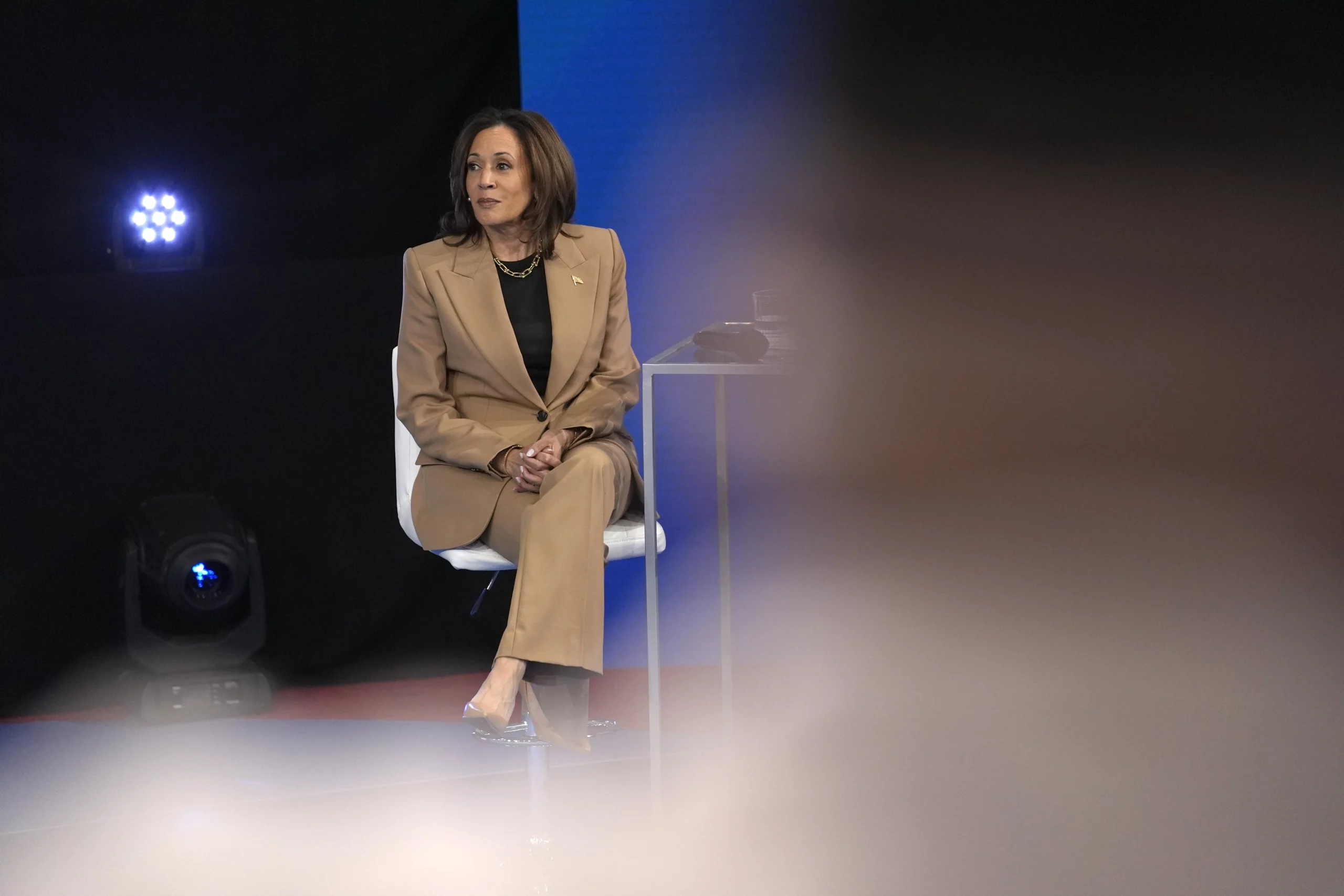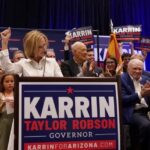

Vice President Kamala Harris‘s live radio town hall with Charlamagne tha God of The Breakfast Club featured a wide-ranging conversation about the Democratic nominee’s efforts to shore up support among black men.
The event, filmed in Detroit, Michigan, one of the “blue wall” states that Harris must win to secure victory on Nov. 5, featured multiple questions from black men who questioned the vice president on her record serving under President Joe Biden and before as the junior California senator.
Black male voters are the second most loyal voting block for Democrats behind black women. But former President Donald Trump’s overtures to black men and some polling showing black male support for Harris is behind Biden’s 2020 support have worried some Democrats with just three weeks until the election.
Harris recently sat down for an interview with the Shade Room, another outlet with a majority black audience, where she reiterated her stance that she will have to earn the black male vote.
She has also relied on former President Barack Obama to help motivate black men to turnout at the ballot. Obama would later admonish black men to put aside their hesitancy of voting for a woman prompting some backlash.
In recent days, the vice president has stepped up her efforts to target black male voters, including releasing an “Opportunity Agenda for Black Men,” an expansion of her “Opportunity Economy” plan, which she repeatedly referenced during her town hall.
Here are the Washington Examiner’s top takeaways from Tuesday’s town hall.
2024 ELECTIONS LIVE UPDATES: LATEST NEWS ON THE TRUMP-HARRIS PRESIDENTIAL RACE
1. Harris says she is disciplined in contrast to Trump
From the very beginning, Harris was questioned by Charlamagne tha God about Republican criticism from Trump and his running mate, Sen. J.D. Vance (R-OH), that her responses to questions are rehearsed talking points.
“That would be called discipline,” Harris interjected as the question was being asked in an indirect comment to Trump’s tendency to free-flow while campaigning.
“What do you say to people who say you stay on the talking points,” Charlamagne tha God continued.
“I would say you’re welcome,” the vice president responded. “The reality is that there are certain things that must be repeated to ensure that I have everyone know what I stand for and the issues that I think are at stake in this election. And so it requires repetition.”
Harris then claimed that she keeps her message consistent, whether it’s in Detroit, Philadelphia, or any other city she visits, to ensure her message cuts through.
2. Harris labels herself a ‘progressive’ on marijuana despite prosecuting 1,900 marijuana cases
Harris’s stance on marijuana legalization throughout her political career has wavered.
The vice president now embraces decriminalizing marijuana, but in her prior role as San Francisco district attorney, Harris saw more than 1,900 convictions for cannabis violations, according to a San Jose Mercury News report in 2019. In her successful race for California attorney general, she argued against legalizing marijuana.
But during the town hall, Harris’s tune has changed.
“I was the most progressive prosecutor in California on marijuana cases and would not send people to jail for simple possession of weed,” she said. “And as vice president, have been a champion for bringing marijuana down on the schedule. So instead of it being ranked up there with heroin, we bring it down.”
Harris then pledged that if elected president she would work on decriminalizing the controlled substance. Later on, Harris also explained that the Biden-Harris administration has worked with the Drug Enforcement Administration but “there’s a certain level of bureaucracy that exists in the federal government that slows things down.”
3. Harris calls for a reparations study, then pivots
During an interview with the National Association of Black Journalists last month, Harris distanced herself from wholesale support of the late Rep. Sheila Jackson Lee’s bill to establish a federal commission to study the impact of reparations for descendants of enslaved people.
But on Tuesday, Harris’s thoughts on reparations changed slightly.
“On the point of reparations, it has to be studied. There’s no question about that. And I’ve been very clear about that position,” Harris said when asked by a voter about her stance on the position.
“I am running to be a president for all Americans. That being said, I do have clear eyes about the disparities that exist and the context in which they exist, meaning history,” Harris added.
Harris then quickly pivoted to touting her economic proposals without further explaining whether she would sign an executive order to implement the legislation.
4. Harris sharpens attacks on Trump, undercutting masculine persona
Throughout the one-hour affair, Harris’s comments against Trump attempted to undercut his persona as the proto-typical masculine leader.
When discussing the Jan. 6 Capitol riot and the fallout, Harris branded Trump as “weak” and “unfit” to serve another term as president.
“One of the things that I think is really ironic, but at play, Donald Trump, through his way of trying to name call and demean and divide, tries to project as though those things are a sign of strength, when in fact, the man is really quite weak,” said Harris. “He’s weak. It’s a sign of weakness that you want to please dictators and seek their flattery and favor.”
Harris also took another shot at Trump’s masculinity and branded him as a man who doesn’t follow the tenets of Christianity.
“Donald Trump and his followers spend full-time trying to suggest that the measure of the strength of a leader is based on who you beat down, which is absolutely contrary to the church I know,” said Harris.
“He sells Bibles though,” Charlamagne tha God interjected.
“Where our church and my church is about saying true leadership, the measure of that is based on who you lift up,” Harris continued. “And then he’s selling $60 Bibles or tennis shoes and trying to play people as though that makes him more understanding of the black community. Come on.”
In another sharp attack against Trump, Harris agreed with Charlamagne tha God’s questions about whether Trump endorses fascism.
Harris described the two visions she and Trump offer the nation, with Trump’s version taking the nation “backward.” She was asked, “The other is about fascism; why can’t we just say that?”
“Yes, we can say that,” Harris quipped.
During the town hall, Harris was asked about Trump’s comments during an Aurora, Colorado, rally last calling for the use of the Alien Enemies Act of 1798 to round up immigrants.
“He is achieving his intended effect to make you scared,” Harris said. “He is running full time on a campaign that is about instilling fear, not about hope, not about optimism, not about the future, but about fear.”
5. Harris makes case her presidency will benefit black America
At multiple moments Harris made sure to discuss how her presidency and her “Opportunity Economy” plan would be more beneficial to black America compared to Trump.
Harris pointed to her specific plan targeting black men that includes loan forgiveness of up to $20,000 for 1 million black entrepreneurs, accessibility to affordable banking options, legalizing recreational marijuana, and training and mentorship opportunities for black male teachers.
“One of the biggest challenges that I face is mis- and disinformation, and it’s purposeful because it is meant to convince people that they somehow should not believe that the work that I have done has occurred and has meaning,” Harris started before describing how she has supported black Americans throughout her career.
In one example Harris pointed to the effects of the child tax credit. “When we did it, when I first became vice president, we cut black child poverty by half,” said Harris.
“We have done the work in the last four years of bringing down the cost of prescription medication,” Harris also said. “Whether it be $35 a month for seniors for insulin, or $2,000 a year cap on prescription medication, what we have done … about putting $17 billion in our HBCUs.”
CLICK HERE TO READ MORE FROM THE WASHINGTON EXAMINER
Harris also pledged to not abandon her efforts if reelected president, perhaps assuaging fears from black Americans that they are only being courted because it’s an election year.
“The work that I continue to do is about increasing access to capital for our small businesses,” Harris continued. “It is about increasing the opportunity for home ownership, knowing that black people are 40% less likely to be homeowners in America. We have a history of legal and procedural obstacles to that homeownership, starting with the fact nobody got 40 acres and a mule.”






